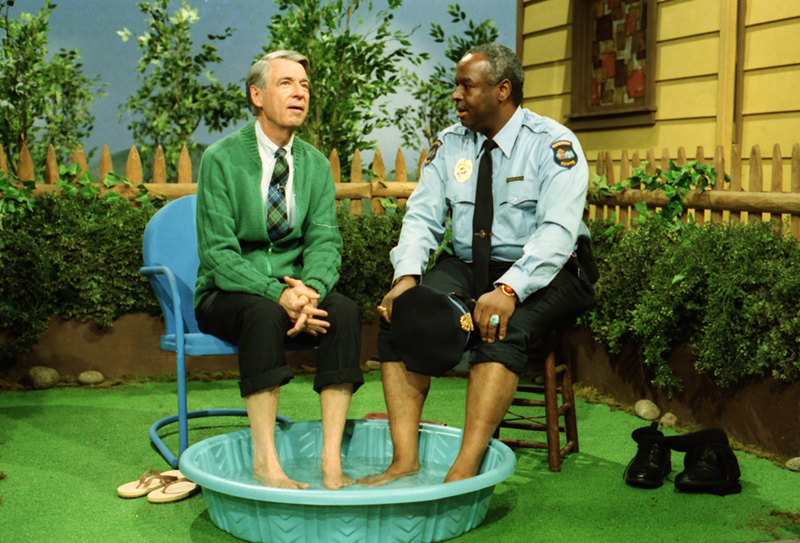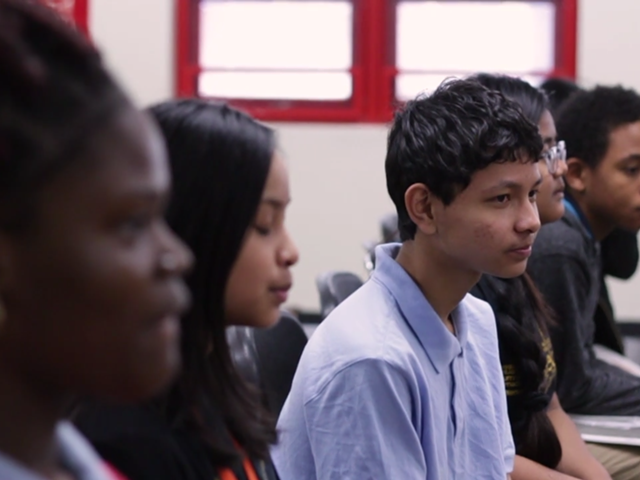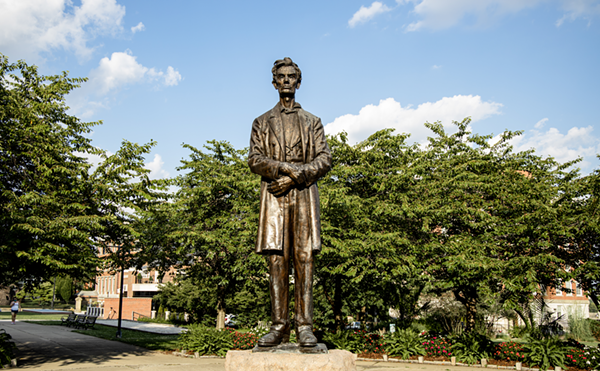
The tagline for Won’t You Be My Neighbor? — Morgan Neville’s inspiring documentary about Mr. Rogers — says it all: “a little kindness makes a world of difference.” And maybe what the world needs, especially now, is more kindness.
Neville is working with a perfect role model for kindness in the late, great Fred Rogers, who from 1968-2001 was the gentle host of a classic public television education series, Mr. Rogers’ Neighborhood, for preschoolers. (Rogers died in 2003.)
Neville previously has taken us behind the music in the Oscar-winning 20 Feet from Stardom, about the back-up singers who crafted rich harmonies for hits by the biggest bands of the Rock era. He then gave audiences ringside seats in Best of Enemies: Buckley vs. Vidal for a re-exploration of televised debates between political polar opposites Gore Vidal and William F. Buckley, Jr.
Once again, we enter the way-back machine with him to the seemingly quaint era of the late 1960s. America pursued dreams of space, fought a war in Vietnam and attempted to maintain peace in our own borders as the end of the civil rights movement brought the deaths of several key figures. Television was there, documenting these events and our frenzied, whiplashed responses.
Neville has a wealth of material to draw from, including black-and-white and color clips from Mr. Rogers’ Neighborhood, archival interviews with Rogers and also newer interviews with those who worked with him, like François Clemmons — Officer Clemmons on the program.
The film explains that it was Bobby Kennedy’s death, coming so closely on the heels of Martin Luther King Jr.’s assassination, that inspired Rogers, a seminarian in Pennsylvania who believed that television could be a powerful force to reach young minds. He wondered how we might engage children in conversation about such loss in a language they could understand.
His dream was for kids to watch something other than the slapstick violence of cartoons or the leering jokes of adults. Rogers spoke to children directly, not pretending they were miniature adults. This required him to dig deeply into himself, to tap into his own dormant childlike thinking and to trust it to re-teach us forgotten lessons about human interaction.
That’s what Mr. Rogers’ Neighborhood was all about. Television became his pulpit, and I refrain from referring to it as “a bully pulpit” as there was never anything close to bullying in the way Rogers sought to convince audiences about what he believed to be right. Even when tackling the most extreme and challenging topics, like death or divorce, Rogers employed an uncommon degree of gentleness.
That approach wasn’t couched in weakness, fear or hesitancy. Rather, this was what unassuming love and righteousness looked like.
There was always an otherworldly aura to Rogers, which certainly generated a mythic cult of misconceptions. It prompted the cynic in us adults to simply not believe he could be as good or kind as he presented himself to be on his show. That led to all sorts of imaginings about what he was “really” like. If he were still alive today, probably someone would challenge his patriotism or try to smear him with insults about his “gentle” political ideology.
Neville confronts these uncomfortable issues in his film. We learn that Rogers was a lifelong Republican, for instance. I found myself wondering how a man who so thoroughly embraced loving all neighbors as he loved himself could find common ground with the party of Nixon, Reagan, father and son Bush and now Trump. I mean, one of his most outward political statements involved his lobbying Congress for funding to support public television — not exactly a popular issue for Republicans today.
At its core, Won’t You Be My Neighbor? is about transcending labels, ideology and even religion. Rogers was a man of great faith, yes. But truth be told, his faith was rooted in the inherent humanity of his audience. As television’s Mr. Rogers, he believed in us more than we tend to believe in ourselves. He wanted to prove to us that we could, in fact, be worthy neighbors to one another. (Opens Thursday at the Mariemont Theatre.) (PG-13) Grade: A





